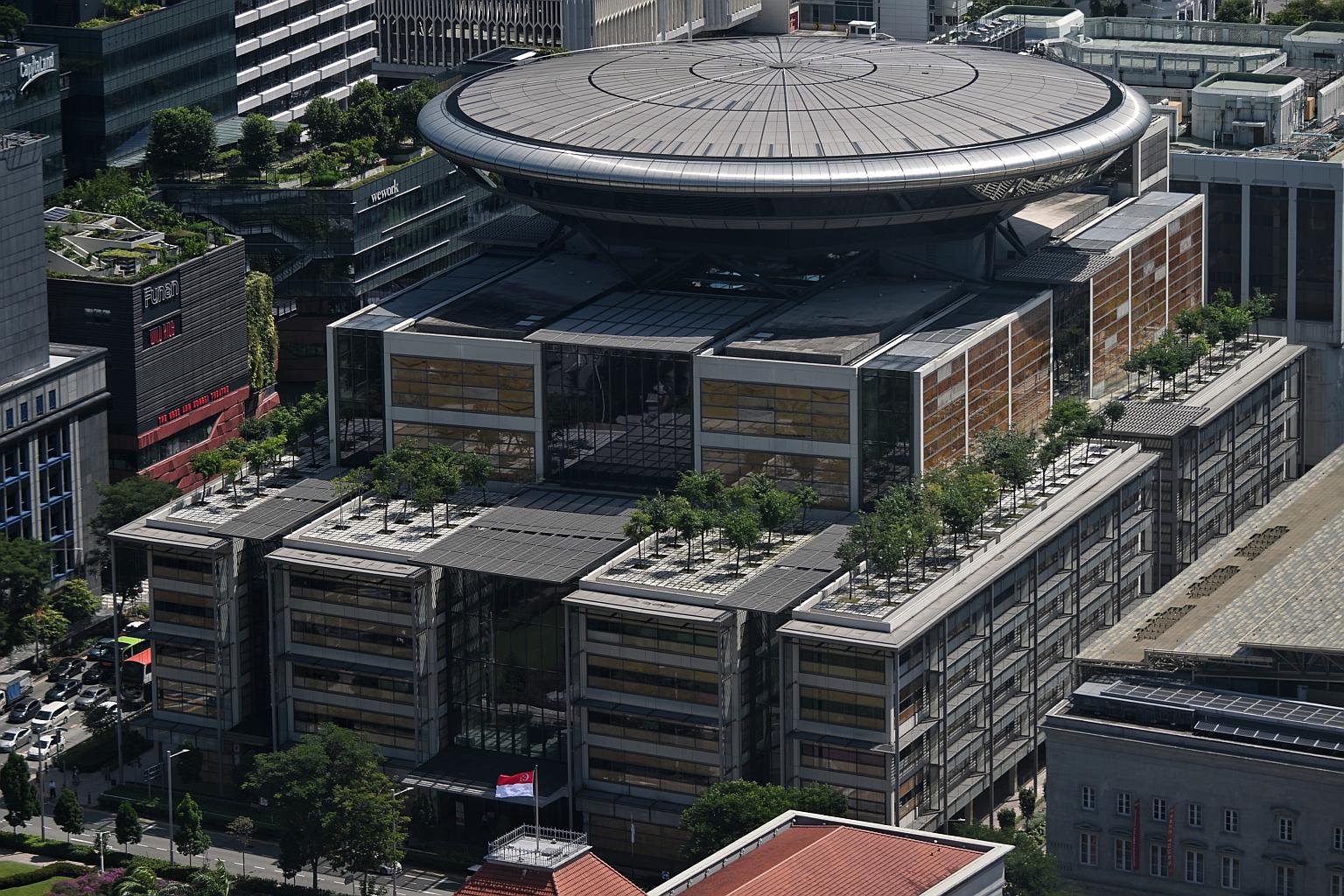S'pore cites inaccuracies, refutes NGOs' claims of international consensus against death penalty
Sign up now: Get ST's newsletters delivered to your inbox

MinLaw and MHA said every country has the sovereign right to determine its own criminal justice system.
ST PHOTO: KUA CHEE SIONG
Follow topic:
SINGAPORE - There is no international consensus against the use of capital punishment when it is imposed according to the due process of law and with judicial safeguards, the Ministry of Law (MinLaw) and Ministry of Home Affairs (MHA) said on Thursday.
They added in a joint statement: "Every country has the sovereign right to determine its own criminal justice system, considering its own circumstances and in accordance with its international law obligations.
"This right should be respected."
The two ministries were responding to recent calls by two global non-governmental organisations for Singapore to establish a moratorium on executions.
They said the statements made by the two NGOs contain a number of misconceptions and inaccuracies, and invited the groups to "examine the facts prior to issuing such statements".
On Aug 9, the International Commission of Jurists urged Singapore to halt impending executions and stop using punitive cost orders against lawyers of death-row inmates for filing late-stage applications.
On Aug 11, the International Bar Association's Human Rights Institute similarly called for a moratorium on executions.
The NGOs asserted that drug offences did not meet the international law threshold for the imposition of death sentences.
On Thursday, MinLaw and MHA said: "There is no basis to assert that the imposition of capital punishment for drug offences is a breach of international law."
The ministries said capital punishment has helped deter major drug syndicates from establishing themselves in the Republic.
"Capital punishment in Singapore is applied only to the most serious crimes which cause grave harm to others and to society. This includes trafficking in significant quantities of drugs, which causes immense harm, not just to drug abusers, but to their families and society as well," said the ministries.
They also refuted the NGOs' claims that the imposition of cost orders against lawyers for making late-stage applications that were "frivolous, vexatious or an abuse of process" has obstructed death-row inmates' access to justice.
"In Singapore, all persons facing capital punishment have access to justice and legal representation," said the ministries.
If a person charged with a capital offence cannot afford a lawyer, legal counsel will be offered to the person free of charge, regardless of nationality, under the Legal Assistance Scheme for Capital Offences.
"Action has never been taken against lawyers for representing persons facing capital punishment," MinLaw and MHA said.
"All defendants (including those facing capital punishment) are entitled to have counsel defend them. That right does not mean persons can abuse the court process."
The ministries noted that in many jurisdictions, the courts have powers to prevent abuse of the court process.
In Singapore, the Supreme Court has taken steps to deal with lawyers who have abused the court processes, in both capital and non-capital cases, they said.
The ministries cited the case of one lawyer who was found by the court to have started proceedings on the basis of speculation.
Both NGOs referred to a failed lawsuit by 24 death-row inmates alleging that they were unable to secure legal representation because lawyers feared such court-imposed cost orders.
MinLaw and MHA said the 24 inmates had full legal representation and that their cases were dismissed by the Court of Appeal.
The inmates then attempted to reopen their cases, which were heard and dismissed by the Court of Appeal, which said their application was completely unmeritorious.
The ministries stressed that Singapore's criminal justice system is fair and impartial, in response to comments that many of those sentenced to death for drug-related offences are minorities and tend to be from economically disadvantaged backgrounds.
They said: "It would be helpful if those who make such comments clarify whether they are suggesting that justice be dependent on the individual's ethnicity and socio-economic status.
"Ethnicity and socio-economic status play no part in the professional discharge of duties by law enforcement agencies in Singapore, in the prosecutorial decisions of the Public Prosecutor, and in the decisions of the courts."

